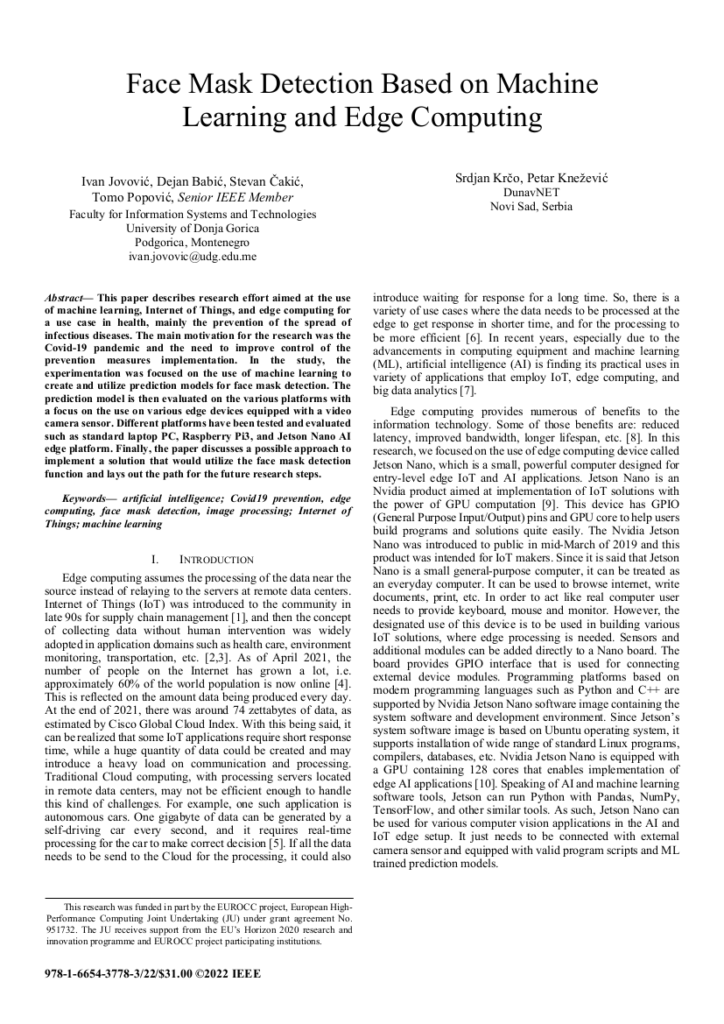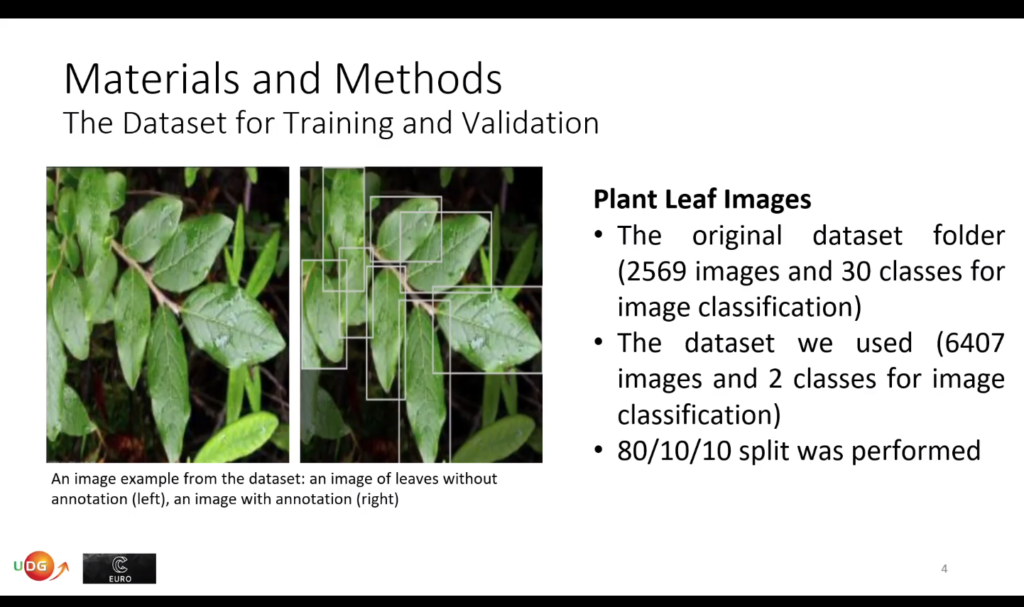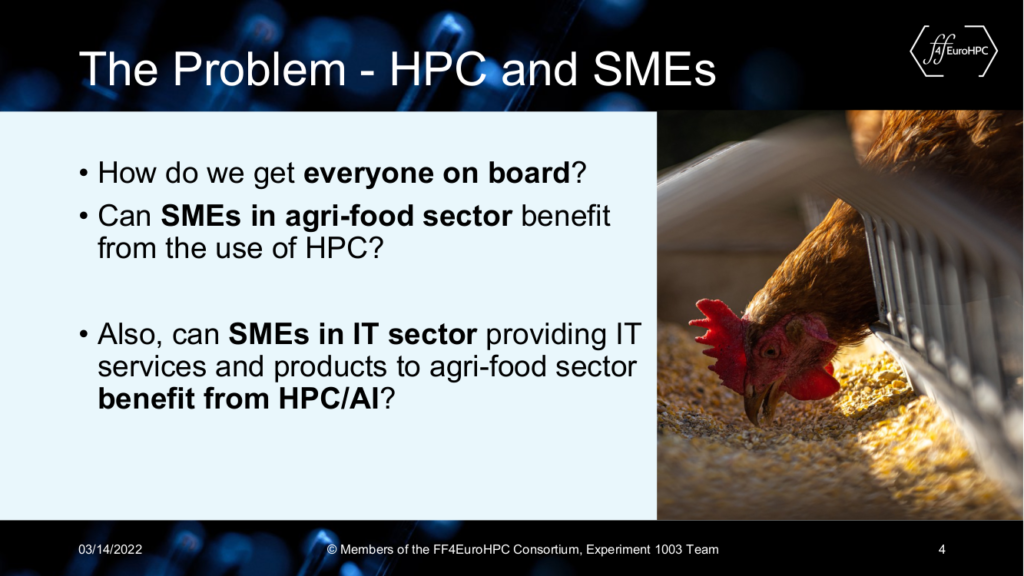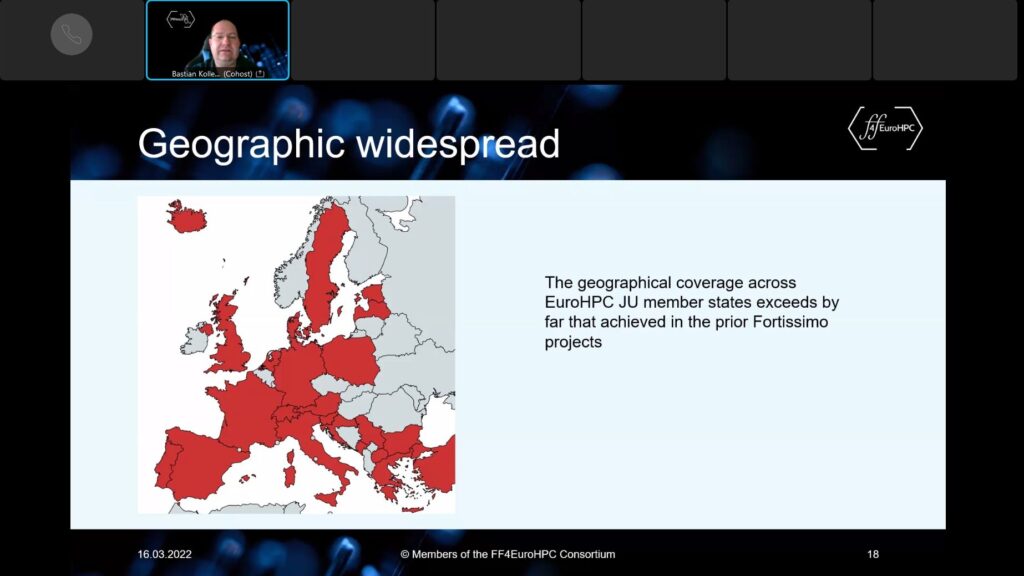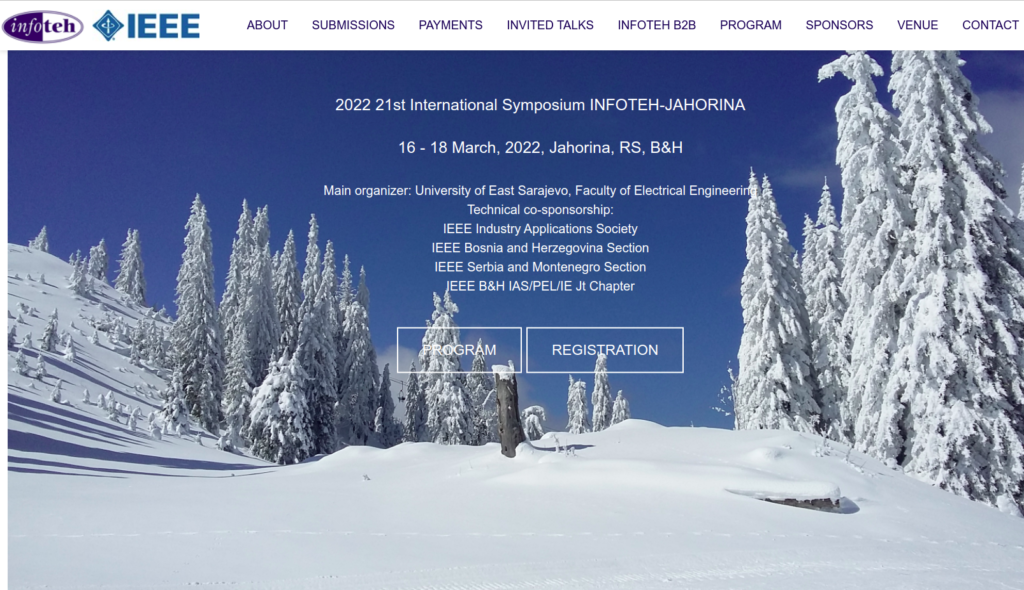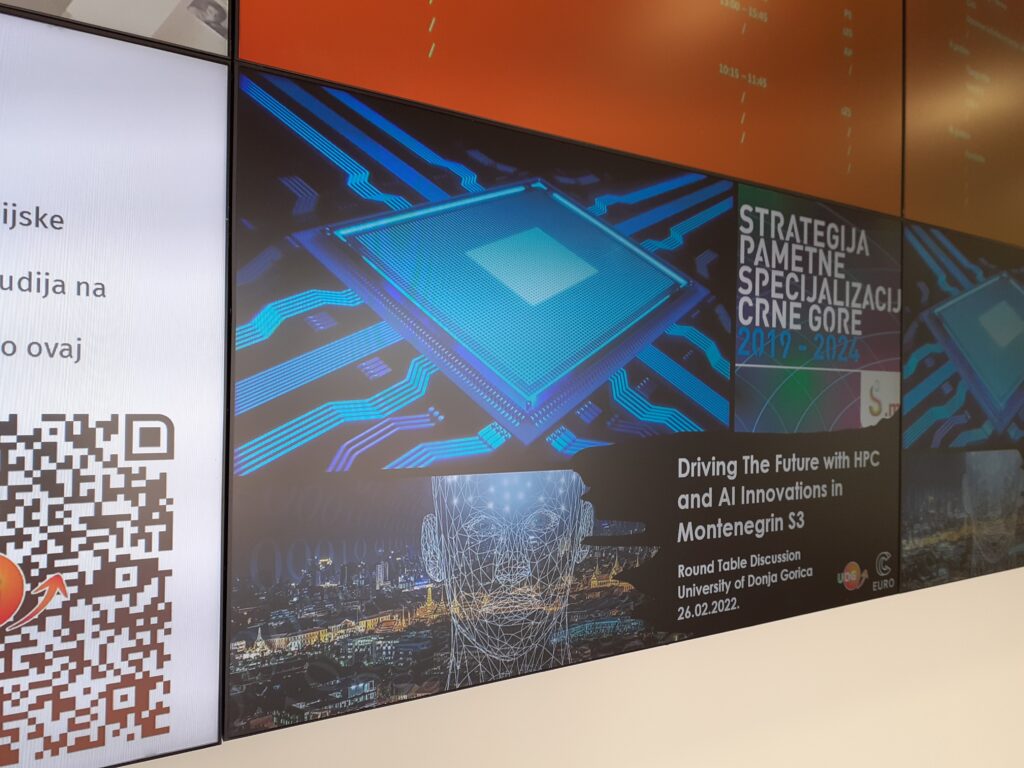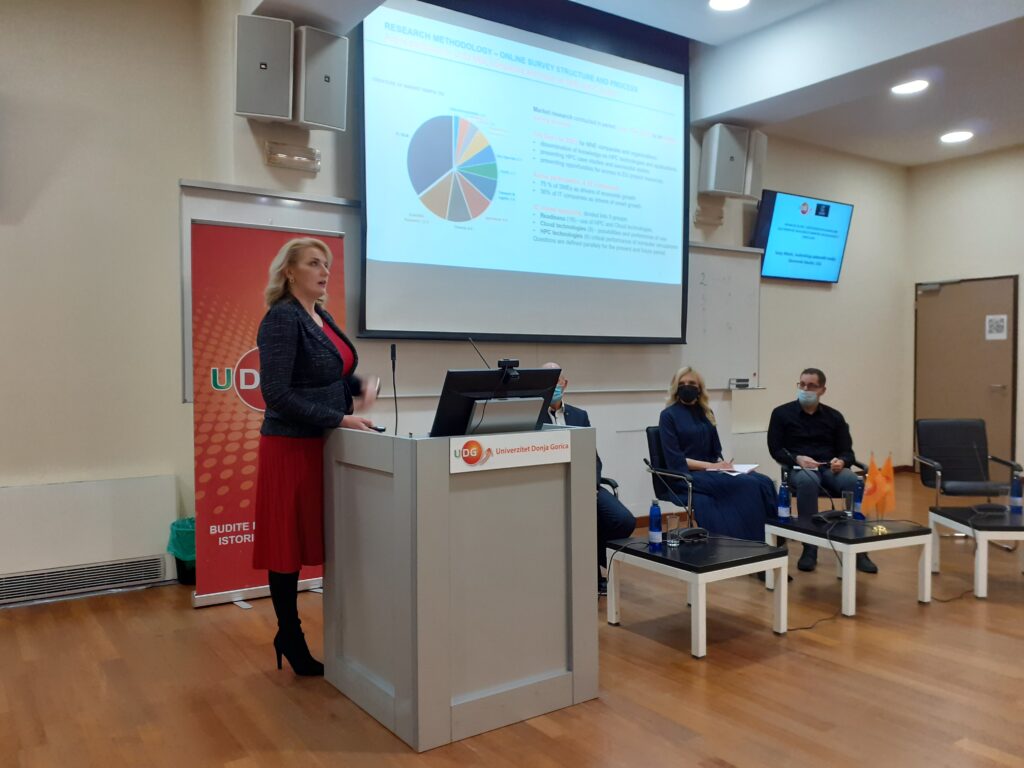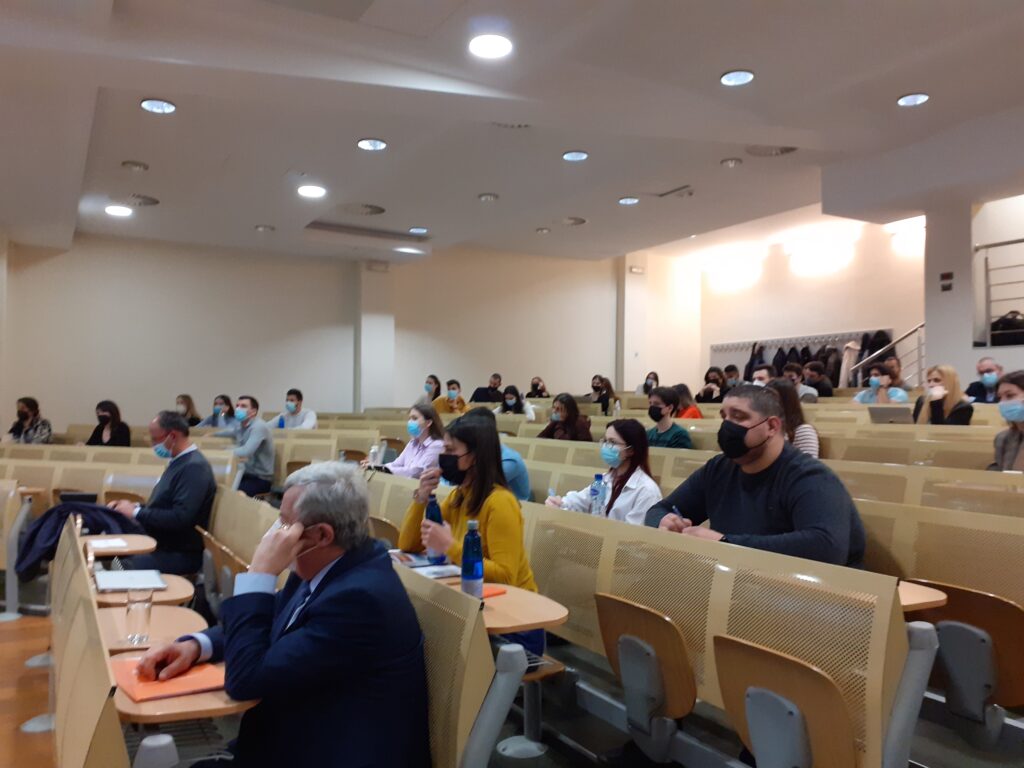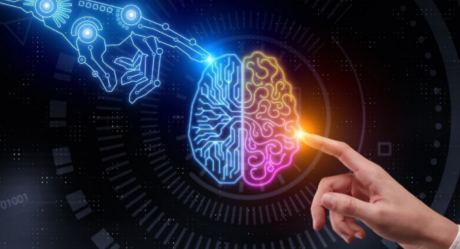A paper titled “Face Mask Detection Based on Machine Learning and Edge Computing”, authored by I. Jovovic, D. Babic, S. Cakic, T. Popovic, S. Krco, and P. Knezevic, was presented at the 2022 21th International Symposium INFOTEH-JAHORINA. The paper was presented by a young researcher Mr Ivan Jovovic, Faculty for Information Systems and Technologies, on 18 March 2022. The paper discussed the use of machine learning for face mask detection and porting of prediction models onto the edge Ai platform. The effort was supported by the EuroCC Monteengro team link.
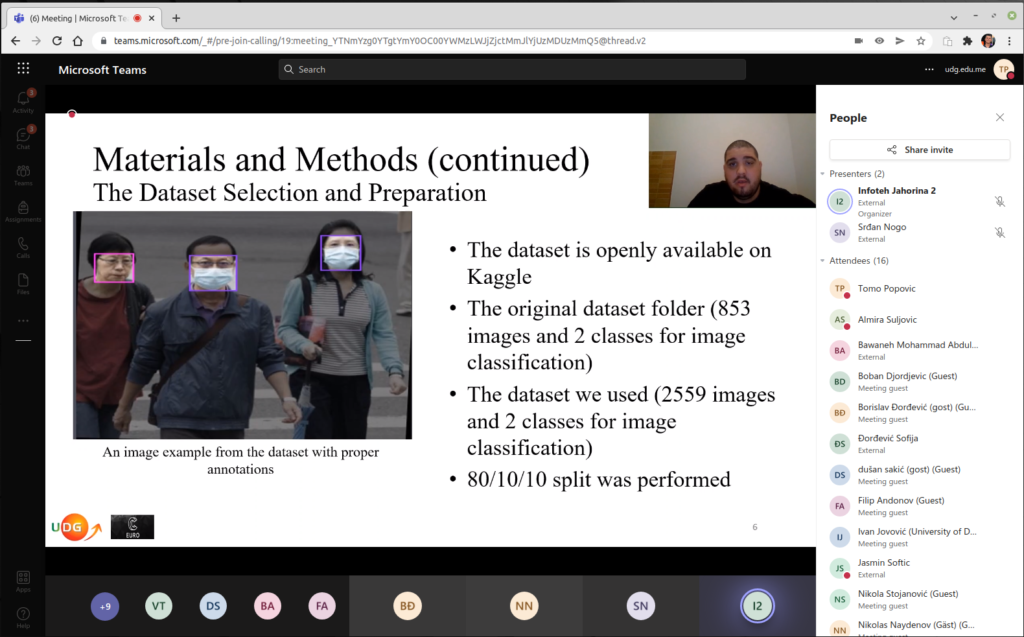
ABSTRACT – This paper describes research effort aimed at the use of machine learning, Internet of Things, and edge computing for a use case in health, mainly the prevention of the spread of infectious diseases. The main motivation for the research was the Covid-19 pandemic and the need to improve control of the prevention measures implementation. In the study, the experimentation was focused on the use of machine learning to create and utilize prediction models for face mask detection. The prediction model is then evaluated on the various platforms with a focus on the use on various edge devices equipped with a video camera sensor. Different platforms have been tested and evaluated such as standard laptop PC, Raspberry Pi3, and Jetson Nano AI edge platform. Finally, the paper discusses a possible approach to implement a solution that would utilize the face mask detection function and lays out the path for the future research steps.


